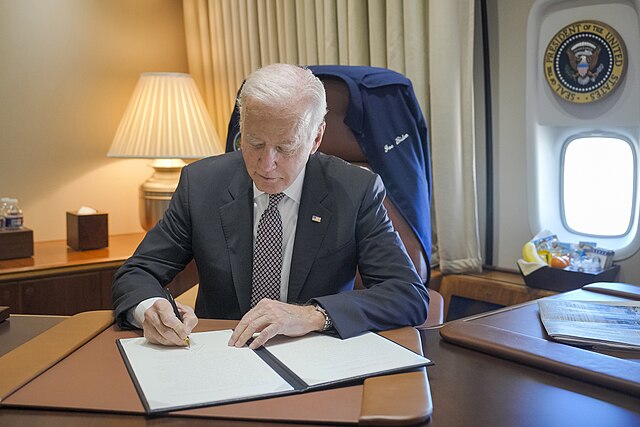President Joe Biden declared on Friday his issuance of a comprehensive federal pardon encompassing all Americans who have previously used marijuana, irrespective of whether they faced arrest or prosecution.
This expansive pardon extends to all US citizens and lawful permanent residents found in possession of marijuana for personal use, as well as those convicted of analogous federal offenses.
The pardon is also applicable to individuals using marijuana in the District of Columbia.
Notably, it excludes those incarcerated for selling the drug, an activity deemed illegal under federal law, or engaging in other marijuana-related offenses, such as driving under the influence of the substance.
Last year, Biden granted a comparable pardon and pledged ongoing reforms.
The recent announcement goes beyond previous measures by pardoning all instances of simple marijuana use or possession under federal law, encompassing individuals who have never faced charges.
Furthermore, it extends Biden’s earlier directive to encompass minor marijuana offenses committed on federal property.
Sweeping Implications of Biden’s Pardon on Marijuana Offenses

Biden’s pardon holds profound implications, addressing the hindrances imposed by criminal records related to marijuana use and possession on employment, housing, and educational opportunities.
However, it is crucial to note that the pardon does not extend to individuals who violated state laws.
Those seeking proof of a pardon must submit applications through the Department of Justice.
The White House has declared that thousands of individuals with federal and District of Columbia convictions will qualify for the pardons, a decision announced by Biden just three days before the Christmas holiday.
In a formal statement, Biden asserted that individuals should not be incarcerated solely for the use or possession of marijuana. He called upon governors to consider pardoning state offenses related to marijuana.


Comments are closed.